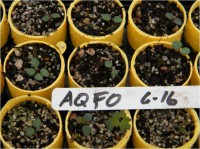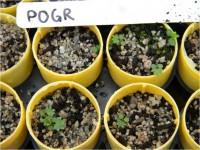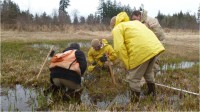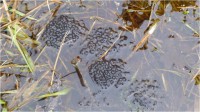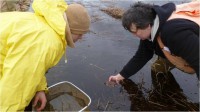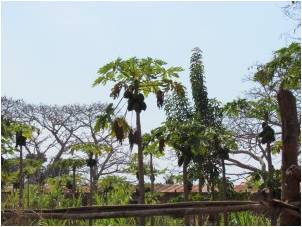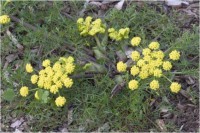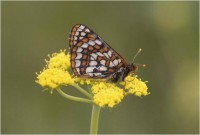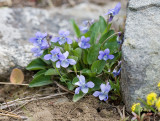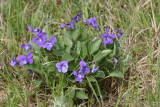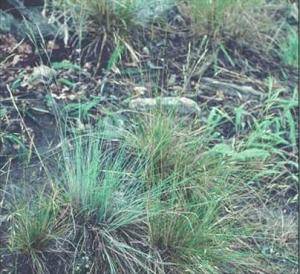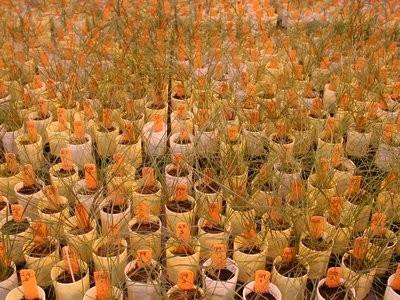Spring and Cold Moisture Storage at Shotwell’s Landing and Stafford Creek Corrections Center
By Graduate Research Associate Evan Hayduk
The snow, hail, and lumpy rain falling around here the last few weeks may make you think it’s still winter, but spring has arrived at Shotwell’s Landing and Stafford Creek Corrections Center (SCCC). Seeds sown in late December and early January are germinating, undaunted by the unseasonably cool temperatures and higher than normal precipitation. Our propagation plan includes two sowing “seasons.” The majority of seed sown last fall and winter were left to stratify in situ. Twenty percent of our seeds go through cold moisture storage (CMS), and then are sown in the spring. The CMS process involves imbibing seeds in water and placing them in a refrigerator for 15-90 days. This process broadens the temperature range at which the seeds will germinate.
At SCCC, Castilleja hispida, Viola adunca, and Lomatium utriculatum seeds sown in December are showing signs of life. A recent trip to account for germination of Castilleja hispida shows that certain seed lots are producing as high as 70% germination. Close attention is paid to which seed lots are showing faster or more germination, and what types of nursery practices are increasing germination rates. At Shotwell’s, Castilleja levisecta, Erigeron speciosis, and Eriophyllum lanatum are also germinating at high rates. All seeds sown have been kept in hoop houses to control moisture levels for optimal germination during this soggy La Niña winter.
25 species have been placed into CMS, the process starts with an ingenious “seed bubbling” system constructed from recycled materials. This system is used to soak seeds for 24-48 hours before placement in CMS. Previously, seeds had been soaked in standing water, which in cases led to the seeds over-imbibing with water. The new system soaks the seeds in running water, allowing for more oxygen flow and lowering tannic acid buildup in the soak water.
In the coming weeks the second “season” of sowing ensues at Shotwell’s with the seeds that are currently in CMS. This work will be done by SPP and Center for Natural Lands Management (CNLM) staff, our tireless volunteers and Department of Corrections community work crews.
- Western Columbine (Aquilegia formosa)
- Slender cinquefoil (Potentilla gracilis)
Close-ups of studies for identifying the cotyledon of seedlings from 2011 plants. Photos by Carl Elliot.
To donate to SPP and support the restoration of native prairies in Washington state, click here.
